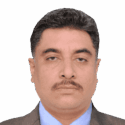Dengue rears its head yet again in Pakistan, and lest we forget, it is a recurring phenomenon. The disease peaks during the monsoon, spreads through crowded cities, and strains hospitals that struggle to keep pace with the emergencies. Reports show sharp increases across the country, especially in Karachi, where more than two hundred and sixty cases were noted by mid-year, according to MMI. November brought over one thousand new cases in a single day, and the national toll crossed twelve thousand by the end of the month, according to Xinhua. The trend worsened as BOL News reported an alarming acceleration in Karachi, where two more people died within twenty-four hours and eight hundred twenty-nine new cases were confirmed across Sindh BOL News. These deaths included a 40-year-old woman from Karachi and a 13-year-old boy from Hyderabad. Sindh has now recorded fourteen thousand four hundred 68 cases this year. The rise in young fatalities echoes concerns highlighted in updates by the National Institute of Health’s (NIH) weekly report. These figures show how dengue has become a yearly stress test for Pakistan.
Dengue spreads through the Aedes mosquito, which thrives in warm and wet environments. It has the habit of laying eggs mostly in small pools of stagnant water, such as open tanks and rooftop containers. Dense cities like Karachi and Lahore provide ideal conditions, as drains in the cities remain blocked and are also not cleaned up from time to time. Heavy rains create waterlogged streets and empty plots where larvae multiply fast. Climate conditions worsen the situation because high temperatures speed up breeding. Weather alerts by the Pakistan Meteorological Department warn that erratic rainfall can extend breeding seasons. Health advisories by the Ministry of National Health Services advise that neighbourhoods with waste accumulation face constant exposure because the mosquito population never fully drops, even in dry months.
The public health system faces serious challenges during each outbreak. Surveillance remains slow, and early warnings are rare. The hospitals in surge scenarios are swamped with volume procedures arising so fast that supplies of the available kits for diagnostics are delayed for confirmation. These are the problems reported in a paper by the PMC Study and in previous reports. There remains an inconsistently coordinated interaction between the federal, provincial, and local bodies.
Fumigation begins only after cases increase, which weakens its effectiveness. The Dengue Alert Response System (DARS) shows some progress in reporting, but data often reaches authorities late. The latest surge in Karachi further exposes system strain because more than four hundred dengue patients were recorded in a single day, and hospitals had to depend on designated beds across government and private facilities, as mentioned by BOL News.
Communities in low-income areas face the greatest burden. Many families lack reliable access to clean water and must store it in open buckets or tanks, which turn into breeding sites. Streets with broken sewage lines flood after light rain, which worsens exposure. Confusion about symptoms leads to late diagnosis and complications. Research in PLOS Neglected Tropical Diseases notes that stigma and fear of treatment costs also keep families from seeking early medical help. The first TI Bangladesh report suggests that weak municipal services in poor neighbourhoods increase the spread of disease. Delays raise fatality risks at times when hospitals operate beyond capacity.
Most government action normally concentrates on an emergency kind of response. Activities such as fumigation and public advisory offer small outreach campaigns during outbreaks, but are taken off the shelf once down-trending in cases is observed. While some data indicate promise from vaccination trials, their limited coverage poses restrictions. Spending caps and changing political objectives further compromise planning throughout the year. The analysis reports from ECDC and local health in Marham revealed that drainage repair, sanitation improvements, and urban planning receive much less funding than emergency spraying; while BOL News’ latest provincial update shows Sindh has thirty-four laboratories in Karachi and eighteen in Hyderabad for conducting dengue tests, yet the surge is still overwhelming the capacity of diagnostics and treatment, indicating the shortfalls of short-term planning.
The environmental conditions further increase the crisis. Under higher temperatures, mosquitoes can breed quickly and survive longer in South Asia. Sudden rain and subsequent warm drying are the best conditions for breeding. Urban flooding is also becoming common and is leaving behind stagnant water in construction sites and empty blocks. Unplanned urban expansion further needs to be combined with blocked drains to aggravate the problem. WHO, PAHO, and climate assessments on the PMC Study evaluation establish that without proper drainage and waste management in the cities, dengue zones expand.
The cost to human life reaches far beyond the hospital wards; it causes heavy medical bills and loss of income when relatives skip work to nurse their sick ones. Daily workers feel the pinch because taking even one day’s leave can threaten their existence. Schools suffer from falling attendance when children get sick or parents keep them from school to avoid exposure. Recent updates from Xinhua and BOL News confirm that fatalities among the younger population remain high, which reflects failures in early management and system overload. Each outbreak halts work, education, and daily life, thereby turning a health crisis into a larger social and economic burden.
Breaking the cycle requires structural reform. Pakistan needs continuous vector control instead of seasonal reaction. Even while monitoring, the cases will have to be followed in real time, allowing early warnings to the authorities. In addition, the municipal services department should continuously clear drains, collect garbage, and stand by to release the water that is not allowed to remain stagnant in the street. There should remain a year-round public campaign to develop awareness. Communities should help monitor breeding sites and receive timely data from health departments. Climate resilience should guide city planning so that monsoon rain does not create long-lasting waterlogging. These steps appear in recommendations by NIH, WHO, and multiple studies in PMC.
Dengue in Pakistan exposes the same weaknesses year after year. It shows how environmental pressures, poor planning, and social inequality combine to create a recurring public health threat. A shift from crisis response to long-term management is necessary. With strict surveillance, proper sanitation, and strong community support, Pakistan can minimize dengue transmission and support vulnerable communities.
Conclusion: The rise of dengue in Pakistan highlights very serious structural failures in public health and urban governance. Unless long-term planning, periodic vector control, and substantial community engagement are considered, it will become impossible to go beyond an occasional emergency to safely reduce the present threat to millions.
If you want to submit your articles and/or research papers, please visit the Submissions page.
To stay updated with the latest jobs, CSS news, internships, scholarships, and current affairs articles, join our Community Forum!
The views and opinions expressed in this article/paper are the author’s own and do not necessarily reflect the editorial position of Paradigm Shift.
Syed Salman Mehdi is a seasoned freelance writer and investigative journalist with a strong foundation in IT and software technology. Renowned for his in-depth explorations of governance, regional conflicts, and socio-political transformations, he focuses on South Asia and the Middle East. Salman’s rigorous research and unflinching analysis have earned him bylines in esteemed international platforms such as Global Voices, CounterPunch, Dissident Voice, Tolerance Canada, and Paradigm Shift. Blending technical expertise with a relentless pursuit of truth, he brings a sharp, critical perspective to today’s most pressing geopolitical narratives.



